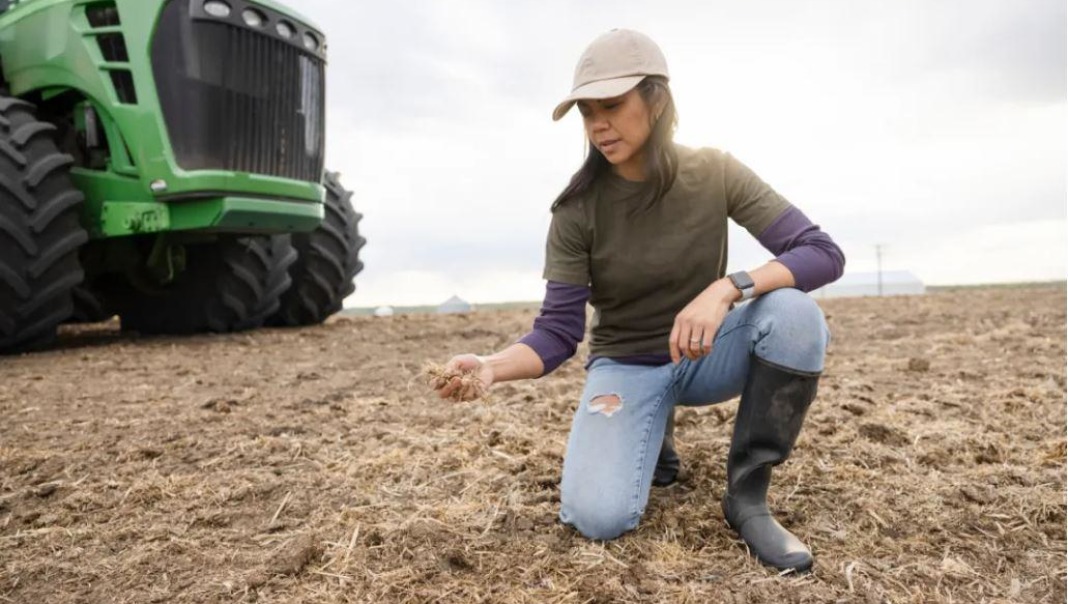Results from the ground up
Wednesday, November 23, 2022
Reference: Decisive Farming

Maintaining soil health and increasing bushels
Soil health is the most important aspect of your farm fields. Without healthy soil, you face a tough challenge each year. When your soil profile is strong and not deficient in any nutrients or minerals, you increase your chance of a successful growing season. More than anything, healthy soil gives you the chance to increase your bushels. If your soil is not healthy, your profits won’t be either.
| “Good growers have good soil health, that’s what makes them good and profitable,” says Garth Donald, Decisive Farming’s agronomy manager.
Variable rate can deliver
Variable rate (VR) is managing your inputs to where they can be best utilized. This has become especially important in a time of sky-high fertilizer prices. Through a successful VR program, you will likely use the same amount of inputs, not less, however, you will distribute them differently for more effective zone management. No more blanket, “just in case” insurance applications. The practice of VR also ties into soil testing, which means trusting the data that’s generated.
| “There’s been a very large misconception that variable rate fertility, or variable rate in general, both fertility and seed is going to save you a bunch of money and cut everything back,” says Donald. “We have 70 per cent of our growers still using the same amount of fertilizer they did as constant rate, but they’re just re-allocating it around the field, and that’s where they’re getting their yield bump.”
This can be a tall order, and Donald estimates somewhere between five and 10 per cent of growers use VR and only about 30 per cent soil test, adding that fear of change and cultural practices are two primary reasons farmers don’t adjust production practices.
By attempting to be as precise as possible with VR, you avoid the headache of overapplying a specific input into one area of the field, or, similarly, never applying enough to a chronically nutrient deficient area. Your inputs go where they will serve you best.
Increase organic matter
It’s important to have high levels of organic matter as this can be a driver for strong plants. To know which options are right for you depends on your location, field history and crop rotation. Don’t forget that organic matter is not a one season solution.
| “It takes a long time to increase organic matter,” says Donald. “Realistically, manure is the only real way you will have a rapid increase because you are putting more organic back in soil.”
Farmers have become progressively interested in cover cropping, yet it is a challenge for most dryland farmers in Alberta. Typically, irrigated farmers are the only ones able to successfully cover crop. If you can, though, it may prove a viable strategy to increase organic matter.
Donald also recommends adopting a no-till or minimum-till strategy with wider tires, not tracks, which are now shown to reduce compaction and produce a low soil imprint.
| “Organic matter is helpful, but you still have to look after how you’re treating up above,” he says. “The more you work your ground, the less organic matter you are going to have. It’s the true wildcard in yield potential.”
Residue management
You should consider your crop residue and how to best manage it. Having large amounts of leftover material isn’t necessarily a positive heading into next spring.
| “Peas can produce a decent amount of residue, but it breaks down very quickly,” says Donald. “Farmers get excited about corn, and say, ‘Wow, nine-foot-tall corn.’ Have you ever seen a cornfield after it’s been harvested? There’s nothing in the leaves and they usually blow away.”
A crop such as flax, for instance, produces a great amount of biomass and its thatch creates an insular layer that makes the ground stay colder. Donald says cereals are your best bet to build organic matter and have the ground warm enough come spring. This helps to ensure you don’t have ice cold ground, which could critically damage a crop, including canola.
| “The least amount of work you can do to that ground the higher your organic matter, the more return you’ll have your farm,” says Donald. “True soil health is all about having a high organic matter soil because we know that you are promoting that environment for earthworms, for microbial activity and for the good fungus and bacteria that are in the soil.”
Let’s get to work. Together. Contact your local Decisive Farming representative today.
Read More
Sign up to stay connected
- News
- Property Alerts
- Save your favourite properties
- And more!
Joining Farm Marketer is free, easy and you can opt out at any time.
